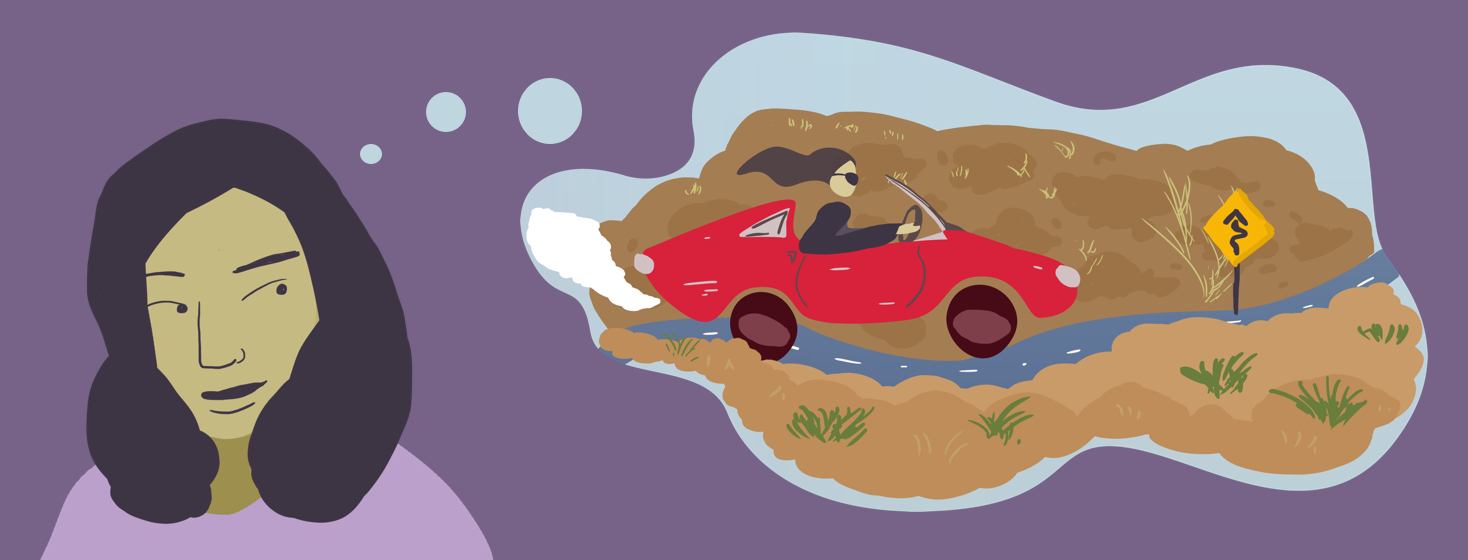Don't Give Up!
It was unimaginable to travel with my situation, a stage IV lung cancer metastasis to the brain. Nowadays, it’s not a big deal. Last September, I attended the International Association for the Study of Lung Cancer Conference (IASLC/WCLC2018) in Toronto, Canada. It was a 2.5 hours flight from Winnipeg, Canada. This March, I went to Las Vegas (a 3 hour flight), and in April, I will go to the Hope Conference in Washington D.C. For me, still being able to travel means a lot. It means I still can handle normal life. On the way to Las Vegas, I could not help to recall my 15 day stay in the hospital when I was first diagnosed.
My emergency room diagnosis
I found my lung cancer due to my brain tumors in the spring of 2015. I had noticed that I struggled to use chopsticks. It’s ridiculous that a Chinese can’t use chopsticks. At the same time, I noticed that my handwriting became smaller towards the end of sentences. So I had an MRI scan. The doctor called me soon after my scan telling me to go to the emergency room. This started my 15 day stay in the hospital.
The first time the doctor told me that I had brain cancer. My heart lifted to my throat and it didn’t drop back for another 2 days. During that time, I was not present, like something was always in between myself and reality. Everything felt far from me but at the same time still close to me. During the first few days in the Emergency Room, I was “wheeled” around to different labs getting CT scans, blood tests, and biopsies. I was then diagnosed with lung cancer with metastasis to the brain.
An unforgettable place
After 3 days in the emergency room, I was moved to the “Terminal Floor” for observation. The “Terminal Floor” is the name I gave to the floor -- I don’t have the guts to go back to that floor to get the actual name. On the “Terminal Floor”, once patients entered their room, they usually don't leave alive except for the rare patients like myself that just received a terminal diagnosis and are there to be observed.
I tried to forget what was happened in the “Terminal Floor”, but could never do so. At night, I skipped sleep and spent hours scrolling online like a mad person. I remembered I read doctor assistive suicide, brain cancer and lung cancer prognosis, symptoms of lung cancer and brain cancer, and how people died with brain cancer and lung cancer. I never cried or felt upset. I felt extremely peaceful. I never thought of my children, husband, parents or friends. I was indifferent as if they were far from me.
Losing my dignity
One thing I noticed was that I lost my dignity. I was a professor. When I entered the university engineering building, there was a kind of pride that I didn’t realize before I was sick -- I didn’t need anybody or anything. I had more than enough funding for research, mentored more than enough students, and was in charge of some decision-making committees. But in that very moment when I was in the emergency room, especially in the “Terminal Floor”, all my pride was gone. I needed the doctors and the nurses to look after me. I felt as though I had become other people’s burden.
In that situation I saw the doctors and nurses from the patient’s point of view -- I felt I was their burden. There were 30+ of us, the patients, just 1 nurse, 1 doctor, and several resident students. Patients needed nurses and doctors to answer questions. Their responses were always to “wait”, but they never came back. We were waiting to die. We were lower than the lowest priority. I used to tell my husband if I was very sick, I would not spend my last moments in the “Terminal Floor”. After my stay there for several days, I told my husband that I want to stay at home.
Rediscovering my joy
About 4 years have passed since my stay in the hospital. I’m well now thanks to my targeted therapy. Before I was sick, I was never into leisurely travel. But today traveling and seeing the world just brings me so much joy. Comparing myself as a terminal patient with myself today as an activate traveling around, one thing I learned is not to give up even at your lowest point. You never know what will come up next.

Join the conversation